What is a Developer? 12 Types of Developers
Are you dreaming of a career as a web developer but feeling lost on where to begin? Don't worry, we've got you covered!
Developers are the masterminds behind the applications, software, and computer systems we use every day. They play a crucial role in creating, testing, building, and optimizing these technologies. But the world of development is vast and diverse, offering various specializations to choose from. Understanding these different types can help you discover the perfect development path that aligns with your interests and skills.
In this guide, we'll break down everything you need to know about becoming a developer. We'll start by explaining what developers do, explore some of the most common types, and then provide valuable tips to kickstart your development journey.
Keep reading!
What is a Developer?
A developer is a skilled professional responsible for designing, building, and maintaining software applications, systems, and websites. They bring technological ideas to life using programming languages, frameworks, and various tools.
Developers typically need to know how to code to write and troubleshoot source code for applications and software. They use computers to write and run code for different tasks, such as creating software, mobile operating systems, or websites. There are various types of developers, each with specialized skills based on their focus area.
For example, software developers focus on creating applications and programs, while mobile developers work specifically with mobile operating systems like iOS or Android. On the other hand, server-side developers work on back-end development, handling databases and server functionality. Another role, known as a Software Development Engineer in Test (SDET), specializes in testing and quality assurance for software applications.
Developers use various coding languages like Java, Python, or JavaScript, depending on the project or platform they’re working on. Each type of developer plays a critical role in the tech industry, contributing to different areas of software development.
12 Common Types of Developers
According to a recent Linkedin report, the job market for developers is returning, and the application rate is much higher than in previous years. There are many types of potential developers as they return to the job market. Let's explore some of the most common types and the skills they need:
Front-End Developers
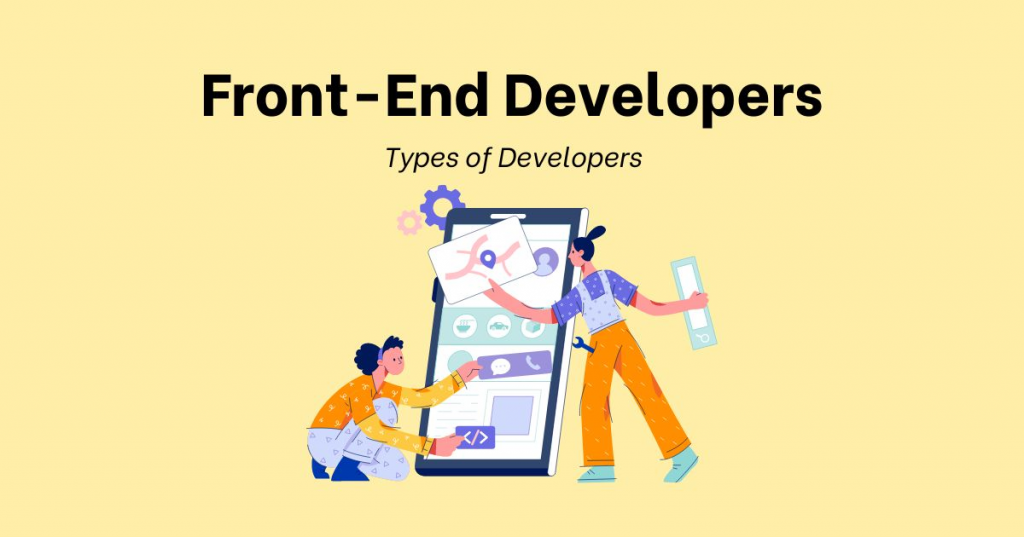
As W3Schools states, "A Front-End Developer is someone who creates websites and web applications"
They focus on the user interface (UI) and user experience (UX) of websites and applications, ensuring they are visually appealing, interactive, and user-friendly. Languages like HTML, CSS, and JavaScript are their primary tools.
3 essential hard skills for front-end developers:
HTML, CSS, and JavaScript: Often referred to as the "front-end development trinity", these three languages are the building blocks of any website or web application.
JavaScript Frameworks and Libraries: While JavaScript is powerful on its own, frameworks and libraries can help developers build complex user interfaces and web applications more efficiently. Popular frameworks include React, Angular, and Vue.js, while popular libraries include jQuery and Bootstrap.
Responsive Design: Websites need to look good and function properly on all devices. Responsive design ensures that your website adapts to the screen size of the device it's being viewed on, providing an optimal user experience for everyone.
Back-End Developers
As Coursera: What Does a Back-End Developer Do puts it, they are the "experts who build and maintain the mechanisms that process data and perform actions on websites."
They work behind the scenes, building the server-side logic and functionalities of applications. They handle data storage, processing, and communication with databases. Languages like Python, Java, and PHP are commonly used.
3 essential hard skills for back-end developers:
Proficiency in Backend Programming Languages: Back-end developers need a strong foundation in at least one, and ideally more, server-side programming languages. Popular choices include Python, Java, JavaScript (especially Node.js), PHP, and Ruby.
Database Management: Effective data storage and retrieval are crucial for any application. Back-end developers need to understand how to design, manage, and query databases. This includes familiarity with relational databases like MySQL and PostgreSQL, as well as NoSQL databases like MongoDB.
API Development: APIs (Application Programming Interfaces) are the messengers that allow different applications to communicate and share data. Back-end developers play a key role in designing, building, and maintaining APIs. They need to understand how to structure APIs, ensure data security, and handle different communication protocols.
Full-Stack Developers
Full-stack developers are the jacks-of-all-trades in the world of web development. They possess a comprehensive skillset that bridges the gap between the user experience (front-end) and the server-side functionality (back-end) of a website or application. This versatility allows them to work independently on entire projects or seamlessly collaborate within development teams.
According to Stack Overflow Annual Developer Survey, full-stack developers remain the most sought-after tech professionals globally.
3 essential hard skills for a full-stack developer:
Front-End Development skills (1)
Back-End Development skills (2)
Version Control System (VCS): This is a tool like Git that allows developers to track changes in code, collaborate effectively, and revert to previous versions if necessary.
Mobile App Developers
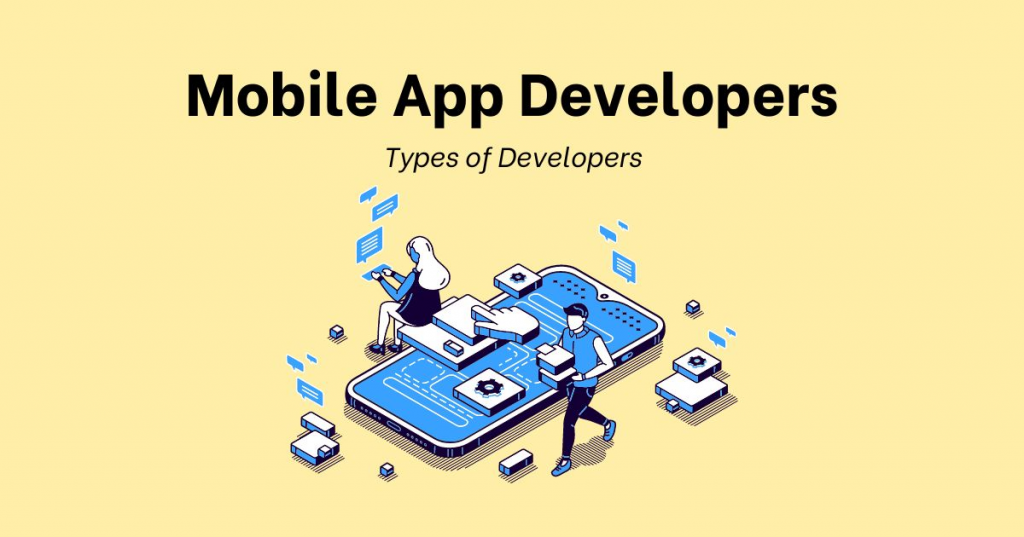
According to a recent report by Clutch: clutch.co, a B2B research, ratings and reviews platform, the demand for skilled mobile app developers is growing strongly as demand for electricity increases. conversation is increasing.
They specialize in creating applications specifically for smartphones and tablets, utilizing platforms like Android and iOS with languages like Java, Kotlin, Swift, and Objective-C.
3 essential hard skills for mobile app developers:
Proficiency in Programming Languages: This is the foundation of mobile app development. Developers need to be skilled in at least one, and preferably more, programming languages specific to the platforms they target. Some of the most popular languages include: Swift (iOS), Kotlin (Android), Java (Android), React Native (iOS, Android),...
Mobile User Interface (UI) Design: Mobile apps need to be user-friendly and visually appealing. Developers should have a good understanding of UI design principles and be able to create intuitive and responsive interfaces. Additionally, familiarity with UI design tools like Figma or Sketch is a plus.
Understanding of Mobile Development Frameworks and Tools: There are various frameworks and tools available to streamline the mobile development process. Some popular options include: Android Studio (Android), Xcode (iOS),...
Data Scientists (Big Data Developers)
In today's data-driven world, where information is king, a new breed of tech professional is emerging as the champion of extracting knowledge from vast and complex datasets: the data scientist (or big data developer).
They are the architects behind the scenes, designing and building the systems that can handle the ever-growing "three V's" of big data: volume, variety, and velocity. As IDC reports, the global datasphere is projected to reach a staggering 175 zettabytes by 2025. Data scientists are the key to unlocking the hidden insights within this ever-expanding digital universe.
They use their programming skills and knowledge of statistics and machine learning to analyze and interpret large datasets, extracting valuable insights and driving data-driven decision making.
3 essential hard skills for Data Scientists (Big Data Developers):
Programming: Data scientists need to be proficient in at least one programming language, with Python and R being the most popular choices. Python is versatile and widely used across various domains, while R is specifically designed for statistical computing and graphics. Other languages like Java, Scala, and C++ are also gaining traction in big data processing.
Statistics and Probability: A strong foundation in statistics and probability is crucial for data scientists to understand data patterns, design experiments, and build accurate models. This includes knowledge of hypothesis testing, regression analysis, and various probability distributions.
Big Data Tools and Technologies: Big data technologies like Hadoop, Spark, and Kafka are essential for handling and processing large datasets efficiently. Data scientists need to be familiar with these tools and platforms to extract, transform, and load (ETL) data, and build scalable data pipelines.
Artificial Intelligence/Machine Learning Developers
According to a report by Upwork, the median pay rate for an AI developer working freelance is between $25 and $50 per hour, highlighting the growing demand for this expertise.
The Bureau of Labor Statistics also projects a 25% growth in jobs for software developers, a field that heavily intersects with AI development. This surge reflects the immense potential of AI to revolutionize industries and create entirely new applications.
They build and implement AI and machine learning algorithms, enabling applications to learn, adapt, and make intelligent decisions.
3 essential hard skills for Artificial Intelligence/Machine Learning Developers:
Programming Languages: Proficiency in programming languages like Python, R, and Java is crucial for AI/ML developers. Python is particularly popular due to its extensive libraries like TensorFlow, PyTorch, and scikit-learn, specifically designed for machine learning tasks. These languages allow developers to build, train, and deploy AI models.
Machine Learning Models: Understanding and applying various machine learning models is essential. Common models include linear regression, decision trees, random forests, and deep learning models like convolutional neural networks (CNNs) and recurrent neural networks (RNNs). Each model has its strengths and weaknesses, and choosing the right one depends on the specific problem and data.
Data Analysis and Engineering: AI/ML projects heavily rely on data. Developers need strong data analysis skills to clean, prepare, and manipulate data for model training. Additionally, they should understand data engineering concepts to build and manage data pipelines that efficiently handle large datasets.
Game Developers
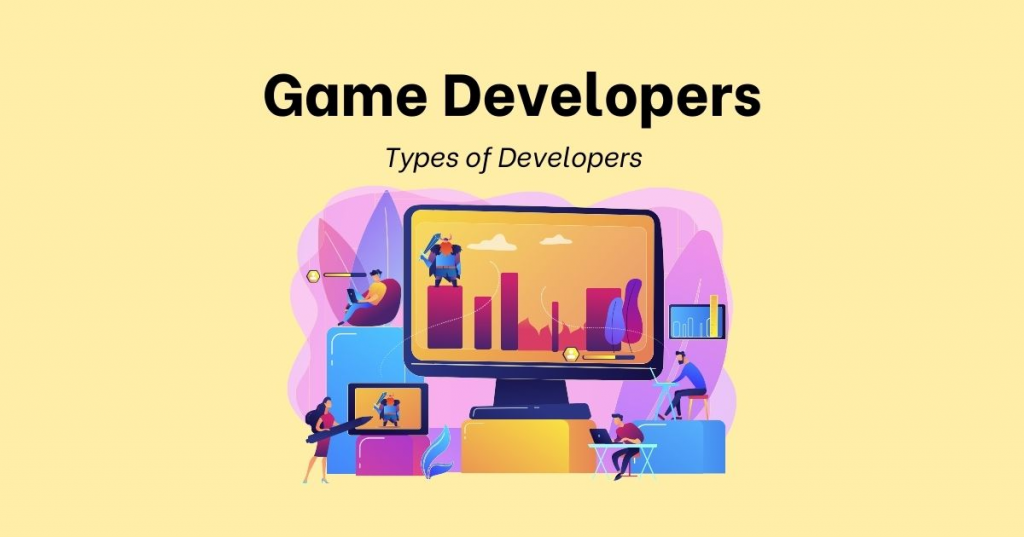
Game development encompasses a vast array of specialties, from programmers who craft the core mechanics to artists who sculpt the visual landscapes. According to a report by the Entertainment Software Association, the U.S. game industry alone employs hundreds of thousands of individuals across various disciplines.
They bring video games to life, designing gameplay mechanics, creating visuals and sounds, and integrating various components using specialized game engines and programming languages.
3 essential hard skills for game developers:
Programming Languages: Being proficient in at least one programming language is crucial for game development. Popular choices include C++, C#, Java, and Python. Each language has its strengths and weaknesses, so the best choice for a particular project will depend on the specific needs.
Game Engines: Game engines are software platforms that provide a set of tools and functionalities specifically designed for game development. They typically include features like physics simulation, rendering, animation, and audio management. Popular game engines include Unity and Unreal Engine.
3D Modeling: While not essential for all game developers, 3D modeling is a valuable skill for creating the visual assets of a game, such as characters, environments, and objects. There are a variety of 3D modeling software programs available, each with its own strengths and weaknesses. Popular choices include Maya, Blender, and ZBrush.
Operating Systems Developers
Operating systems, the fundamental software that bridges hardware and applications, are the unseen masterminds orchestrating everything that happens on your computer.
While most users interact with the flashy applications on top, a dedicated team of developers toils away crafting the core functionality. As Statcounter, Windows holds the largest market share (over 72% as of 2024) for desktop operating systems, but a vibrant ecosystem of macOS and Linux users thrives as well.
Behind each of these platforms lies a passionate group of developers whose expertise keeps the digital world running smoothly. They work on the core software that powers computers and devices, ensuring smooth operation and interaction with hardware components.
3 essential hard skills for Operating Systems Developers:
Operating Systems Fundamentals: This includes a deep understanding of how operating systems work, including memory management, process scheduling, device drivers, and file systems. A strong foundation in these concepts allows developers to create efficient and robust operating systems.
Programming Languages: Proficiency in low-level programming languages such as C, C++, and Assembly is crucial for developing operating systems. These languages provide developers with fine-grained control over hardware resources and allow them to write highly optimized code. Additionally, knowledge of scripting languages like Python and Bash is also valuable for automating tasks and building system tools.
Computer Architecture and Organization: Understanding how computer hardware works is essential for developing operating systems that can efficiently utilize system resources. This includes knowledge of topics such as CPU architecture, memory hierarchy, and I/O systems.
DevOps Engineers
According to a RedGate Survey: 74% of high-performing organizations have adopted DevOps practices. This rapid adoption highlights the increasing need for skilled professionals who can navigate the complexities of modern software development.
They bridge the gap between development and operations, automating workflows, streamlining software delivery, and ensuring efficient collaboration between teams.
3 essential hard skills for DevOps engineers:
Automation: DevOps engineers are all about streamlining processes and increasing efficiency. One of the key ways they achieve this is through automation. They use scripting languages like Python, Ruby, or Bash to automate repetitive tasks, such as provisioning infrastructure, deploying applications, and running tests. This frees them up to focus on more complex and strategic work.
Cloud technologies: The cloud has become an increasingly popular platform for developing and deploying applications. DevOps engineers need to be familiar with cloud platforms like AWS, Azure, and GCP. They should be able to provision and manage cloud resources, such as servers, storage, and networking. Additionally, they should understand cloud-specific DevOps tools and services.
Infrastructure as Code (IaC): IaC is a practice of managing infrastructure in a programmatic way. Instead of manually configuring servers, networks, and other resources, DevOps engineers use code to define the desired state of the infrastructure. This makes the infrastructure more consistent, reliable, and easier to manage. Popular IaC tools include Terraform, Ansible, and Chef.
Security Developers (SecDevOps)
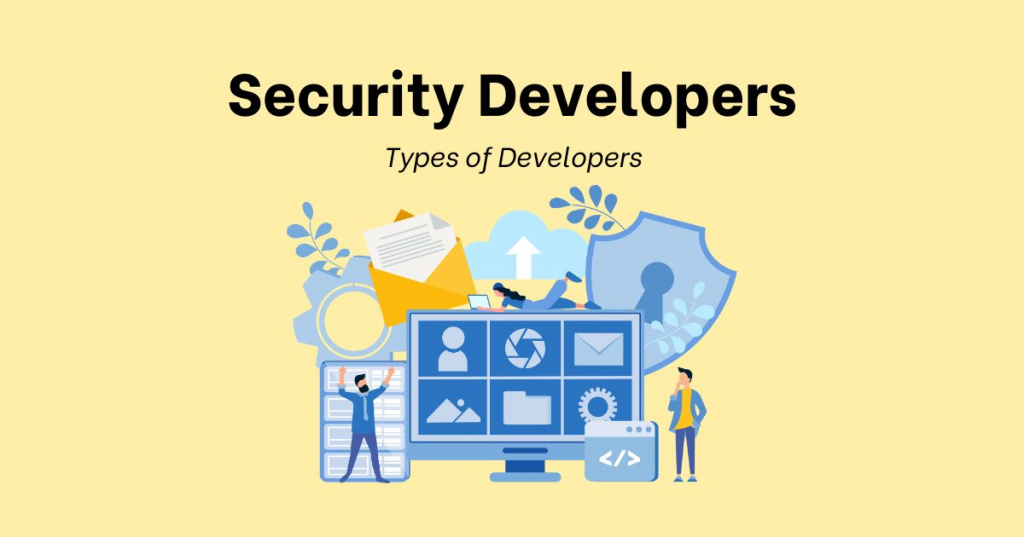
Enter Security Developers (SecDevOps), a revolutionary approach that integrates security best practices throughout the entire software development lifecycle (SDLC). As Pluralsight states, SecDevOps "moves security to the left," meaning security is considered from the very beginning of a project, not as a separate step at the end. This proactive approach helps to "eliminate security issues before they appear" Acunetix.
They prioritize building secure software by identifying and mitigating vulnerabilities, protecting applications and systems from cyberattacks.
3 hard skills for Security Developers (SecDevOps):
Coding and scripting: SecDevOps engineers need to be proficient in coding and scripting languages to automate security tasks, develop security tools, and integrate security into the development process.
Security knowledge: SecDevOps engineers need a strong understanding of security concepts, threats, and vulnerabilities. This includes knowledge of secure coding practices, network security, and application security.
DevOps skills: SecDevOps engineers need to be familiar with DevOps tools and practices. This includes knowledge of version control systems, continuous integration/continuous delivery (CI/CD), and infrastructure as code (IaC).
Web Developers
The web has become an undeniable cornerstone of modern life, and behind every website and application we interact with lies the skilled hand of a web developer. These programmers are the architects of the digital world, wielding code to craft user interfaces, manage data, and build the interactive experiences we rely on every day.
As Coursera states, "A web developer's job is to create websites," but their craft encompasses much more than just aesthetics. Web developers ensure a website's functionality, performance, and behind-the-scenes logic, all working together to deliver a seamless user experience.
This broader term encompasses both front-end and back-end developers who specifically build websites and web applications.
3 essential hard skills for web developers:
Front-end development skills (1)
Back-end development skills (2)
Database management systems (DBMS): A DBMS is a software application that allows users to create, manage, and access data. Web developers use DBMSs to store and retrieve data for their web applications. Some popular DBMSs include MySQL, PostgreSQL, and Oracle.
Desktop Software Developers
Desktop software, from the creative suites you use to design or the productivity tools that streamline your workday, are brought to life by desktop software developers. They create applications that run on personal computers, focusing on functionality, user interface, and system integration.
*According to Upwork, Desktop Applications Developers are still in high demand.
3 essential hard skills for Desktop Software Developers:
Programming Languages: Proficiency in at least one programming language is crucial for desktop software developers. Popular choices for desktop development include: C++, Java, C#, Python.
Data Structures and Algorithms: Understanding how data is organized and manipulated is essential for writing efficient and scalable software. This includes knowledge of various data structures like arrays, linked lists, trees, and graphs, as well as algorithms for sorting, searching, and problem-solving.
Software Development Tools and Frameworks: Desktop software developers utilize various tools and frameworks to streamline the development process. Some common examples include: IDEs, VCS,...
How to Become a Developer?
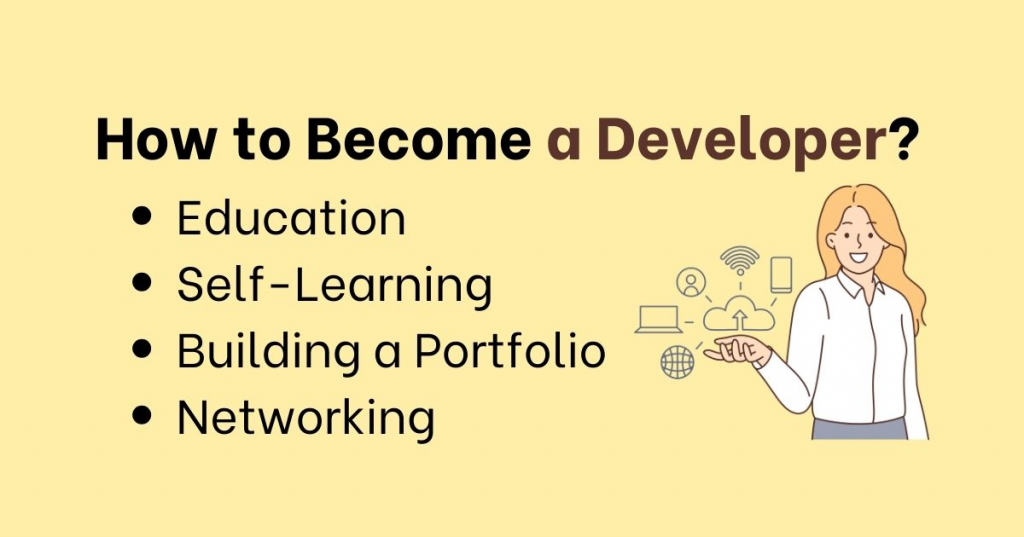
There isn't a single path to becoming a developer. The journey often involves:
Education: Earning a computer science degree or attending coding bootcamps can provide a strong foundation in programming languages, software development principles, and problem-solving skills.
Self-Learning: Numerous online resources, tutorials, and communities allow individuals to learn programming languages and gain practical experience at their own pace.
Building a Portfolio: Creating personal projects or contributing to open-source projects demonstrates your skills and helps you stand out when applying for developer positions.
Networking: Building connections with other developers through online forums, meetups, or hackathons can provide valuable learning opportunities and industry insights.
Additionally, we have some tips for becoming a developer here:
Power Up with Certifications: Getting certified isn't a must, but it helps. Look for boot camps and courses for developers. Certifications vary, so see what's hot in job listings.
Ask About Work Certifications: If you're a developer, ask your boss about certifications. Some jobs help with course costs. It's a win-win – you grow, and they get a better developer.
Master Whiteboarding: In interviews, you might code without a computer using whiteboards. Practice this. Listing steps on a board boosts confidence and helps in interviews.
Remember, the field of development is constantly evolving, so continuous learning and staying updated with the latest technologies are crucial for a successful career in this dynamic field.
If you haven't found the courses you like, our programming courses may be able to help you. Check now!
Skilltrans presents a selection of related courses to help you deepen your understanding of IT. Please click on the course name below to learn more:
350+ Exercises - Python Programming Mega Pack - OOP
The "350+ Exercises - Python Programming Mega Pack - OOP" course is an expansive, immersive training program focused on advancing Python programming skills with a particular emphasis on Object-Oriented Programming (OOP). This course is designed for both beginners and experienced Python programmers who want to delve into the realm of OOP.
With more than 350 hands-on exercises, this course offers a comprehensive exploration of Python's object-oriented features. It begins with the basics of OOP, explaining concepts such as classes, objects, and methods. As the course progresses, it delves into more complex topics, such as inheritance, polymorphism, and encapsulation.
ES6 JavaScript: The Fundamentals
This course will teach you the fundamentals of ES6 in the JavaScript programming language.
There is a lot of content out there for learning ES6 but much of this doesn't teach the why behind the concepts. Through code examples this course will teach you all the ES6 fundamentals and show you how things were done in JavaScript before. By doing this you will be able to confidently work with and update older legacy projects.
Understanding ES6 is a skill that will help you gain employment in the industry today. It is also very fun to work with! If you ware looking to work with libraries such as React then it is a fundamental skill and part of your learning journey.
Functional Programming with Python Comprehensions
This course is carefully crafted to bridge the gap between beginner and intermediate Python programming, focusing specifically on functional programming principles. Throughout the course, you'll embark on a transformative journey, mastering the art of using list, set, dictionary, and nested comprehensions to write clearer, concise, and more efficient code.
At the end of this course you can expect to have a real understanding of:
List Comprehensions.
Set Comprehensions.
Dictionary Comprehensions.
Generator Comprehensions.
Nested Comprehensions.
The difference between Imperative & Declarative Programming styles.
Final Thoughts
There are 12 types of developers to test for, each suited to different skills and interests. Dive in, learn about the fields that interest you, and start your journey towards an exciting, growing career. We hope this article about definition, common types of developers and their important hard skills has helped you shape the person you want to become.
God bless you with your success!



